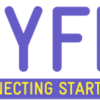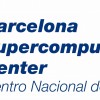GeorgiaTech 2025 – Summer courses offered to FIB students
Don't miss the opportunity to join the Georgia Tech's summer program at the North Campus.

As every year, on May start the GeorgiaTech’s summer programme at FIB. If you are a Bachelor Degree student you can attend courses and get credits.
Schedule:
- 12 May:
- Welcome from 10 to 11 at the Sala d’actes FIB - Manuel Martí Recober
- 13 May: start classes at 9h (room C6003)
- 24 July: last day of classes
- No classes:
- May 30 to June 1
- 7 to 9 June
- 4 to 6 July
Available courses for the Full Summer Session, from 13 May to 23 July:
- CS 3750: Human-Computer Interface, Prof. Richard Henneman
Schedule: Tuesday, Wednesday and Friday from 13:30 to 14:50h
Description: This course equips you with essential methods and skills to design effective and usable human-computer interfaces. Using a user-centered approach, you’ll explore approaches that apply to any system, product, or service involving human interaction.
We will focus on three key process elements:
• User Research – Techniques such as contextual inquiry and survey design to understand user needs and requirements.
• Design – Fundamentals including brainstorming, accessibility, and prototyping (both low- and high-fidelity).
• Evaluation – Methods like expert reviews and user testing to assess and refine designs.
Throughout the semester, you’ll collaborate on a team-based project, applying course concepts to create and evaluate a real-world interface that will be grounded in your Barcelona experience. No coding experience is required.
- CS 4400: Introduction to Database Systems, Prof. Rodrigo Borela
Schedule: Tuesday, Wednesday and Friday from 15 to 16:20
Description: Databases play a crucial role in the modern world, powering many of the applications we use daily. This course introduces the fundamental concepts of database design and management, with a focus on the relational model. We explore the database design process through the course material, individual assessments and the completion of a group project. The project will take you from the real-life problem description to a conceptual data model and on to the implementation of a database specific model (namely the relational data model). We will see how to use the relational database language SQL to define the relations and to write SQL statements to insert, delete, retrieve, and update the data. Finally, we will study ways to judge and improve the goodness of relations to ensure efficiency and integrity. SQL statements to insert, delete, retrieve, and update the data. We'll study ways to judge and improve the goodness of relations.
Available courses for the First Half Semester, from 15 May to 19 June:
- CS 3790: Introduction to Cognitive Science with Prof. Sashank Varma
Schedule: Monday and Thursday from 13:30 to 17:45h
Description: This course will offer a multidisciplinary perspective on cognitive science. These disciplines include computer science, psychology, neuroscience, linguistics, and philosophy. This course will utilize electronic readings ranging from textbook chapters, recent reviews of scientific literatures, and seminal papers from multiple fields to ground the lectures. Students will be expected to attend all lectures, keep up with the readings, write regular discussion board posts and reflection papers on the meatier readings, and complete two longer assignments where they read and summarize first an empirical paper and then a computational modeling paper from the cognitive science literature.
- CS 4001: Computing and Society, and Ethics, Prof. Rich DeMillo
Schedule: Monday and Thursday from 9 to 13:15h
Description: This course examines the broader impact of computing on individuals, organizations, and society, focusing on the ethical, legal, and social implications of technology. Rather than addressing technical computing concepts, the course explores topics such as privacy, cybersecurity, artificial intelligence, social media, and emerging technologies, with an emphasis on real-world issues and contemporary debates.
Coursework includes discussions, case studies, and critical analysis of computing’s evolving role in society. Historical perspectives, cyber ethics, and critical thinking frameworks provide a foundation for evaluating the responsibilities of computing professionals. Active participation is essential, as the course develops skills in research, written and verbal communication, and analytical reasoning. The course encourages a deeper understanding of technology’s societal impact and the ethical challenges shaping its future.
Available courses for the Second Half Semester, from 23 June to 24 July:
- CS 4803 Research Methods for Human Factors and HCI with Dr. Carrie Bruce
Schedule: Monday and Thursday from 9 to 13:15h
Description: This course will explore and give practice with many of the research methods, tools, metrics, and analyses used in the human factors, engineering psychology, human-computer interaction, and design fields. We will cover qualitative and quantitative approaches to assessing performance, preference, and affective responses as part of the evidence-based design, development, and deployment of systems and services. Some examples include surveys, focus groups, interviews, usability studies, task analysis, modeling, physiological data collection, eye tracking, benchmark tasks, accessibility audits, web analytics, and more.
You will learn how to choose methods, plan studies, and perform research that helps generate evidence to inform and reflect on design decisions. Leveraging a user-centered approach, you’ll explore research methods that apply to any system, product, or service involving human-computer interaction. The unique schedule for classes will enable us to learn through lecture and discussion, with most classes incorporating in-class activities. We will likely have opportunities for guest lectures with local HCI and UX practitioners.
- CS 4726: Privacy Technology, Policy, and Law (Ethics Credit) with Prof. Ana Antón and Prof. Swire
Schedule: Monday and Thursday from 13:30 to 17:45h
Description: This mixed undergraduate and graduate-level course takes a multi-disciplinary approach to the study of privacy - a corrent topic of great international interest for those in technology, policy, law, and/or business. The course includes lectures, break-out groups, in-class teamwork, and other techniques to engage student participation. There are no pre-requisites for this course, and students from varied backgrounds are welcome. Course topics can include privacy engineering, AI, analytics, privacy policies, regulatory compliance, social networks, dark patterns in user interface design, facial recognition, ubiquitous computing, surveillance, wiretapping, and encryption. The course features group projects that engage students in real-world privacy challenges; specifically, compliance with new privacy regulations, development of an organization’s privacy and security policies, and designing new privacy-sensitive approaches and/or tools for Internet technologies. The professors draw on their extensive experience in business, government, technology, and law to address current privacy debates.
Requirements and conditions:
- Courses are open to GEI students who have not previously taken similar subjects and who have passed at least 180 ECTS or more.
- All the courses are taught in English.
- For any course passed, the student will get 6 ECTS elective credits (the enrolment is after the course). Maximum of 12 ECTS credits can be recognized.
If you are interested in attending some of the courses, please send an email with topic ‘GeorgiaTech 2025 – Summer courses’ to specifying the course/s you want to take and your personal data.
Deadline to sent petitions: 5 May 2025
© Facultat d'Informàtica de Barcelona - Universitat Politècnica de Catalunya - Website Disclaimer - Privacy Settings












